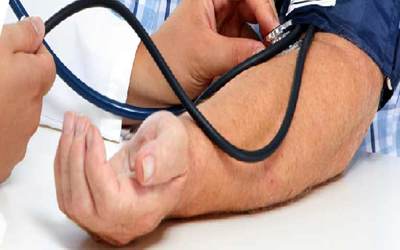When it comes to health, one can never start preparing too early for a healthy future. While it is important for people of all ages to be health-conscious and make healthy lifestyle choices, doing so as a young adult can have many positive effects as you grow older.
[the_ad id=”6238″]
While most 20-year-olds tend to put off doctor’s appointments and health tests until they’re older, there are certain tests that are recommended even before you hit the age of 30.
BLOOD PRESSURE TEST
High blood pressure occurs when the force of your blood pushing against the walls of your arteries is consistently higher than normal, Over time, high blood pressure can damage the lining of the arteries, which may lead to heart attack and stroke. On the other hand, low blood pressure can deprive your body of oxygen. Getting your blood pressure checked at least once every two years starting at the age of 20 is recommended. Smoking, drinking alcohol, obesity, stress, and being physically inactive can affect your blood pressure. If you have severely high blood pressure, your doctor may recommend frequent testing.
CHOLESTEROL TEST
Cholesterol is of 2 types: LDL and HDL. LDL or ‘bad’ cholesterol can lead to the build-up of fat in the arteries. HDL or ‘good’ cholesterol helps in the expulsion of ‘bad’ cholesterol. If you have excess LDL or too little HDL in the blood, cholesterol can combine with other substances to form thick plaques on the inside of your arteries, thus increasing the risk of heart attack and stroke. It is all the more crucial to check your cholesterol levels if your family has a history of heart disease or stroke. To maintain a healthy heart, be sure to commit to this test.
STD TEST
The most effective ways to avoid contracting and spreading STDs is to always use protection during sex and to get tested on a regular basis. If you are sexually active with multiple partners or have a new partner, you should get checked for sexually transmitted diseases like AIDS, chlamydia, and gonorrhea. This test is quick and easy to get done. It’s really important to get this test done, not just in your 20s, but throughout your life. Especially if you don’t practice safe sex.
DIABETES SCREENING
A diabetes screening assesses your blood sugar levels and determines if it’s in the normal range or not. One should keep a check on their blood sugar levels regardless of whether or not symptoms of the disease appear first. Because, at times, affected people only show mild symptoms, while a few may show no signs at all. Testing not only helps in the early detection of the disease but can help the doctor formulate a treatment plan to help manage your condition at the earliest. This test is strongly recommended to those with certain risk factors including obesity, high blood pressure, sedentary lifestyle, and those with a family history of diabetes.
DENTAL CHECK-UP
Everyone should visit their dentist at least once a year for an examination and a clean-up. In addition to daily brushing and flossing, dental cleanings can help prevent gum disease and plaque build-up, and maintain the integrity of the tooth enamel to prevent decay. On average, getting your dental health examined once a year is suggested. But smokers, pregnant women, diabetics, those with gum disease, and those with weak immunity to bacterial infections may need to get their dental health examined at least once every 2-3 months.
VITAMIN D TEST
Constant fatigue, susceptibility to sickness, bone and back pain, and irregular menstrual cycles are all symptoms of Vitamin D deficiency. Known as the sunshine vitamin, Vitamin D is essential for strong bones, because it helps the body use calcium foods. If you work indoors most of the day, follow a strict vegan diet or suffer from milk allergies, this test will help reveal your body’s Vitamin D levels.
VITAMIN B TEST
This test measures the levels of B vitamins in your blood. B vitamins are nutrients the body needs for a range of essential functions including maintaining normal metabolism and helping lower bad cholesterol. If you experience tingling or burning in your hands and feet, weakness, fatigue, or have a family history of anemia, get this test done to have your Vitamin B levels checked.
HEMOGLOBIN TEST:
Hemoglobin is a protein in your red blood cells that carries oxygen to your body’s organs and tissues – deficiency of which can cause fatigue, dizziness, and sometimes, nail abnormalities. If left untreated and in cases of severe deficiency, it can affect the heart as well. If you’re a woman of reproductive age (menstruating women), it’s essential to keep a check on your hemoglobin levels.
Health checks are significant even before you hit 30. But, keep in mind that you may need different or more frequent testing based on your own health condition, medical history, and family history. It’s always best to consult your doctor for personalized advice. So, be informed and stay healthy!
Source:

